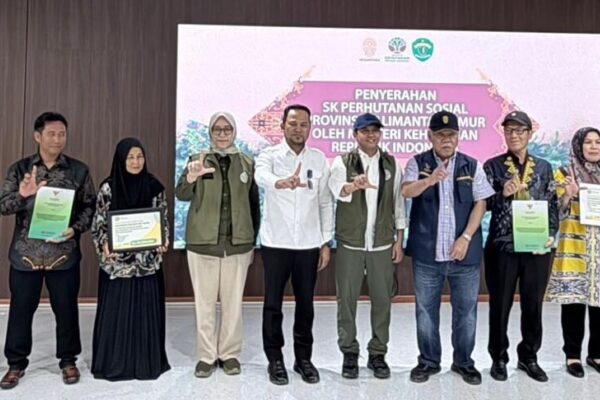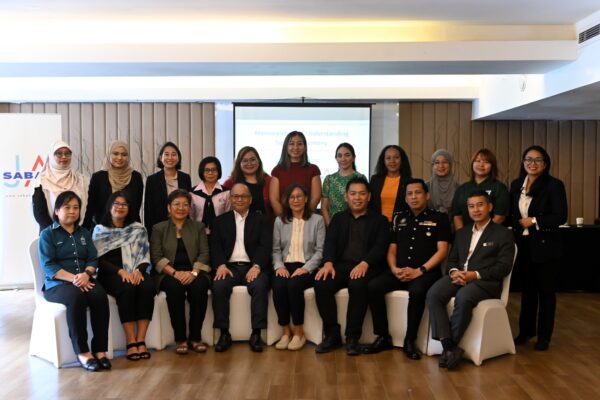4 min read
The presence of forced labour in the country has negatively impacted businesses and the nation's global reputation.
This challenge, particularly affecting migrant workers due to Malaysia's reliance on labour-intensive sectors, has led to the government's development of the National Action Plan on Forced Labour 2021-2025 (NAPFL). After the NAPFL was released, Malaysia transitioned from Tier 3 to the Tier 2 Watchlist in the US Department of State's 2023 Trafficking in Persons Report. The government hopes that with more businesses implementing better labour practices, the country will eliminate forced labour by 2030.
“The NAPFL 2021-2025 outlines a course of action comprising four strategic goals, developed in line with the National Action Plan on Anti-Trafficking in Persons 2021-2025 (NAPTIP 3.0). The government has implemented a comprehensive strategy to realise the vision outlined in the NAPFL. This multifaceted approach aims to incentivise companies to continually enhance their labour practices and prioritise the well-being of workers. One key aspect of this strategy focuses on improving knowledge and awareness," said the Minister of Human Resources, YB Tuan V. Sivakumar.

While the national action plan and associated regulations signify a positive shift towards improved employment practices, their practical implementation and compliance require time.
Earthworm Foundation, is a global non-profit that partners with companies, the government, community and civil societies to co-create solutions to environmental and social challenges in global supply chains and develop practical guidelines to aid industry compliance with the NAPFL.

The booklet provides companies with tools and insights on compliance benefits, non-compliance risks, and methods of preventing forced and child labour in business practices.
“For around a decade, Earthworm in Malaysia have witnessed progress. Thousands of workers have had their passports returned due to improved company policies and operations.
The booklet provides companies with a self-assessment checklist and steps for companies to understand laws, standards, and guidelines to oversee fair recruitment processes, ensure fair employment conditions, protect their labour workforce, and guidance on due diligence and ways to practise transparency,” explained Quek Karl Yen, Earthworm Foundation's Regional Director for Asia.
Visit: www.earthworm.org/campaigns/get-it-right to learn more
In collaboration with the Malaysian Ministry of Human Resources and supported by the Ministry of Plantation and Commodities, Earthworm Foundation produced a practical guide for the palm oil industry and other sectors to foster better workforce labour practices.
The Minister of Human Resources (MOHR) in Malaysia, YB Tuan V. Sivakumar, launched the #GetItRight it right guide with over 100 attendees representing government institutions and companies convened for the launch event, showcasing a collective commitment to combat forced and child labour in the country.

“Everyone within the supply chain has a role to play in promoting and developing better labour practices."
shared Minister YB Tuan V. Sivakumar, as he urged companies to optimise the guidelines fully.
"It is my hope that the #GetItRight guidelines will highlight this shared responsibility and explain the roles in addressing forced labour and helping to promote decent work practices," he said.

The launch event also featured a sharing session with speakers from the International Labour Organization (ILO) highlighting the collaboration with MOHR in developing and implementing the NAPFL. Representatives of palm oil refineries, companies, and brands also shared their experiences and best practices. They provided practical examples and insights into best practices for an improved workforce, citing how these strategies benefited them in the short and long term.
The commitment demonstrated during the event's launch instils optimism towards eliminating all forms of forced and child labour in Malaysia by 2030. Join the collective effort to eradicate forced and child labour in Malaysia through this practical resource. The #GetItRight booklet is available in English, Bahasa Melayu, and Mandarin languages.
More information and a complimentary copy of the booklet can be accessed here:
Contact:
- Sheila Kartika, Regional Communication Manager for Indonesia and Malaysia, Earthworm Foundation: s.putri@earthworm.org or gettingitright@earthworm.org
Editor’s Note:
- Based on the International Labour Organisation (ILO) Forced Labour Convention, 1930 (No.29); forced labour is defined as “. . .all work or service which is exacted from any person under the menace of any penalty AND for which the person has not offered himself or herself voluntarily.”; child labour is defined as “. . .work that deprives children of their childhood, their potential and their dignity, and that is harmful to physical and mental development. It refers to work that: (1) is mentally, physically, socially or morally dangerous and harmful to children; and/or (2) interferes with their schooling by depriving them of the opportunity to attend school, obliging them to leave school prematurely; or requiring them to attempt to combine school.
- The National Action Plan on Forced Labour (NAPFL) outlines the government of Malaysia’s commitments and vision to eliminate the use of forced labour in any and all forms in Malaysia by 2030. It is for company owners and small and medium enterprises in labour-intensive industries, managers and supervisors of labour workers, and human resources and sustainability teams.
- The Get It Right, How to Build Better Labour Practices booklet was developed by Earthworm Foundation, in close collaboration with the MOHR and MPIC to provide companies with tools and insights on the benefits of compliance, the risks of non-compliance and methods of preventing forced and child labour in business practices.
About Earthworm Foundation
Earthworm Foundation is an impact-driven non-profit that partners with businesses, civil society, communities and governments to reduce the impact of raw materials sourcing on people and the planet. Its supply chain, social and environmental experts work across 5 continents to improve conditions for people, forests and soils impacted by the production of cocoa, packaging, palm oil, rubber and more. With over 100 members and partners, Earthworm focuses on implementing responsible sourcing commitments in supply chains and innovating practical solutions to social and environmental challenges across sourcing landscapes. In Malaysia, Earthworm Foundation works in Sabah and Southern Central Forest Spine (SCFS) landscapes.


